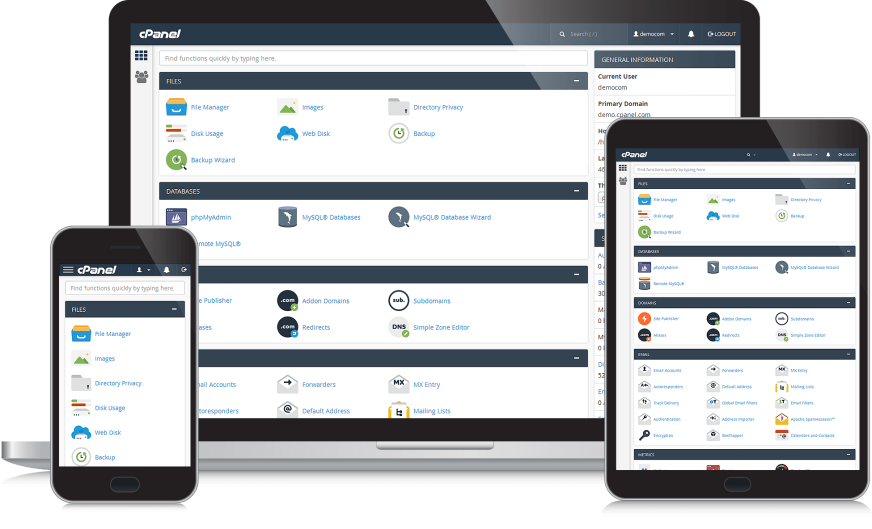Update, January 2024: We are now offering AlmaLinux on High Performance Virtual Servers as a production-ready CentOS alternative.
This story comes from deep within the world of technical infrastructure. If you still remember how you felt when the CentOS Linux distro entered its end-of-life phase (2021-2024), or if you’re interested in the business and politics of open source software, then we have some juicy news for you.
On the other hand if you’re more interested in whether your server is going to keep working (rather than how it keeps working), the short version might be enough. That version goes something like this:
The makers of a particularly important flavour of Linux, called CentOS Linux, decided a couple of years ago to wind it up in 2024. Then in the last few days they’ve made life harder for a lot of the people who have been using stable CentOS code as a base for alternative systems. Here at SiteHost we’re happy to report that Cloud Containers are 100% unaffected by any of this. A lot of our other platforms aren’t so lucky, though, so we have been looking very closely at what we’ll do before the ‘off’ switch gets flicked next year. By not moving too soon we’ve avoided most of the fallout from the latest drama.
Now for the longer story...
Red Hat has cut off reuse of downstream CentOS code
On 15 June, an AlmaLinux developer noticed that some updates to RHEL (Red Hat Enterprise Linux, the long-standing open source repository that has existed downstream of CentOS) hadn’t been shared on git.centos.org. So they filed a bug report and waited. A week later, things got weird.
Red Hat closed the bug report with a short comment which ended, “with the end of life of CentOS Linux 7 coming, we will no longer publish source code on git.centos.org”. Sensing that a bug report might not be the most obvious place to drop such a massive surprise on the Linux community, they also blogged about it (which perhaps they should have done before they abruptly stopped code-sharing).
Red Hat’s decision - which is entirely theirs to make, no matter how the rest of us feel about it - is that “CentOS Stream will now be the sole repository for public RHEL-related source code releases”. CentOS Stream sits upstream of RHEL, making it a different and less-stable entity to CentOS Linux. This decision effectively kneecapped a number of RHEL rebuilds.
People weren’t happy. Red Hat noted as much in their next blog post (which took much less than a week): “We’ve been called evil,” they said, “so let’s clear things up.”
Red Hat went on to argue that their continued sharing and collaboration upstream of RHEL proves their commitment to open source software development. But: “much of the anger from our recent decision around the downstream sources comes from either those who do not want to pay for the time, effort and resources going into RHEL or those who want to repackage it for their own profit. This demand for RHEL code is disingenuous [...] we are not under any obligation to make things easier for rebuilders.”
In short, RHEL rebuilders like Rocky Linux and AlmaLinux, among many others, are going to have to make big changes to the way they operate, and fast.
There’s no immediate danger. CentOS Linux is still in support until mid-2024, despite all the upheaval. We are not running anything out of support, or anything that presents a stability risk. We never would.
Red Hat have every right to make the decision that they did. By sharing downstream RHEL code for so long, they gave the fuel to a lot of the Linux community’s fire. That flame will inevitably dim down now, all because Red Hat made a single business decision.
CentOS Linux at SiteHost
CentOS Linux is one of the options we offer when, for example, you spin up a new Virtual Server, and - for now - it’s a core part of a number of our hosting platforms. Anything that runs cPanel, for example, is a CentOS system.
There’s no immediate danger. CentOS Linux is still in support until mid-2024, despite all the upheaval. We are not running anything out of support, or anything that presents a stability risk. We never would.
Instead we have been watching, waiting, and assessing alternatives while there’s still been time on the clock. Our own response to Red Hat’s change of heart has been to breathe a sigh of relief that we hadn’t followed other early adopters away from CentOS Linux and into newly-affected products like Rocky Linux or AlmaLinux.
Since 2021 it has seemed likely that Ubuntu would become the best CentOS Linux alternative. There has been plenty of progress, but it’s not yet ready to take over. cPanel is supporting Ubuntu, but not its latest LTS release yet. Another system that we need to keep running is CloudLinux, which until now has been CentOS-dependent. Its subsystem for Ubuntu is currently in beta.
Let us state very clearly that throughout our platforms we will always prefer fully-supported software over beta releases. (This is why we're still running CentOS Linux.) It’s good to see the advances that have been made, but we’re not making any moves yet.
Dodge all of this with Cloud Containers
There are a lot of reasons why we recommend Cloud Containers, our most popular hosting platform. As we watch CentOS conflagrate, one big positive is that the Cloud Container platform is a cPanel-free, CentOS-free, RHEL-free zone.
Cloud Containers are entirely unaffected by the issues swirling around the Linux ecosystem. If you are looking for a way out, migrating to Cloud Containers could very well be your best option.
Your Servers and CentOS
If you’re spinning up a new Linux server, CentOS will be an option in the control panel but we suggest you select it only if there’s genuinely no other alternative. If a Debian base can work in your case, we recommend that you go in that direction.
If you have servers that are already running CentOS, you have about a year left before it falls out of support. Perhaps this recent news is a sign that it’s time to move to a new system on your own terms, while there’s still time to make a careful choice. If you would like some advice before you make any decisions, we are always here to help.
Pushing pedals, pulling levers, going nowhere
In the wake of Red Hat’s bombshell lots of people are busily solving tricky problems just to keep the lights on.
To briefly comment on this whole thing from an insider’s point of view: Our industry is not exactly showing off its best side right now. We are one of many, many companies that’s been dragged into a mess that we can’t avoid, and which no-one can really gain much from. Red Hat have made a change and now it’s going to take a lot of time and energy to manage the fallout. The only obvious outcome will be a smaller, grumpier Linux ecosystem.
Very few pulses are set racing by the technicalities of open source licensing, or spats over the value of downstream distro rebuilds. There may be principles at stake, but it feels like egos are at play as well. Either way, no-one seems to be thinking about the people who ought to matter most - the people who actually use the technology that we build and maintain.
In the wake of Red Hat’s bombshell lots of people are busily solving tricky problems just to keep the lights on. A lot of developers are going to need to throw tons of effort into reconfiguring their products and/or their coding processes - perhaps switching to a Debian base, or perhaps by syncing into other sources of RHEL code. Ideally that time and those resources would be spent on creating new things. As long as the goal is to make sure that nothing breaks, all eyes are off the prize of improving system performance or delivering new features.
This isn’t just talk. Unencumbered by RHEL and CentOS, our Cloud Containers developers have made the platform faster and introduced a new Python image in recent weeks. The next few months might see even more reasons for you to get on board.



